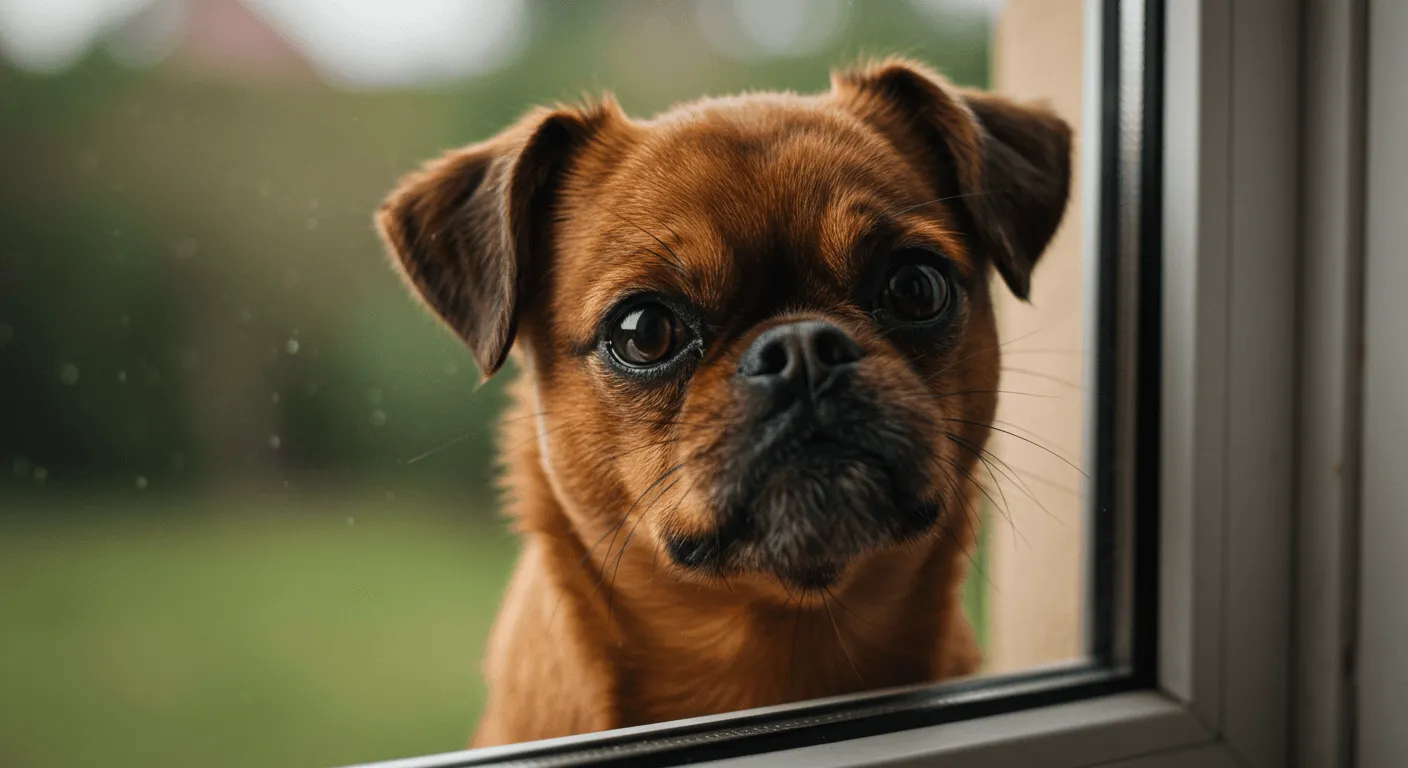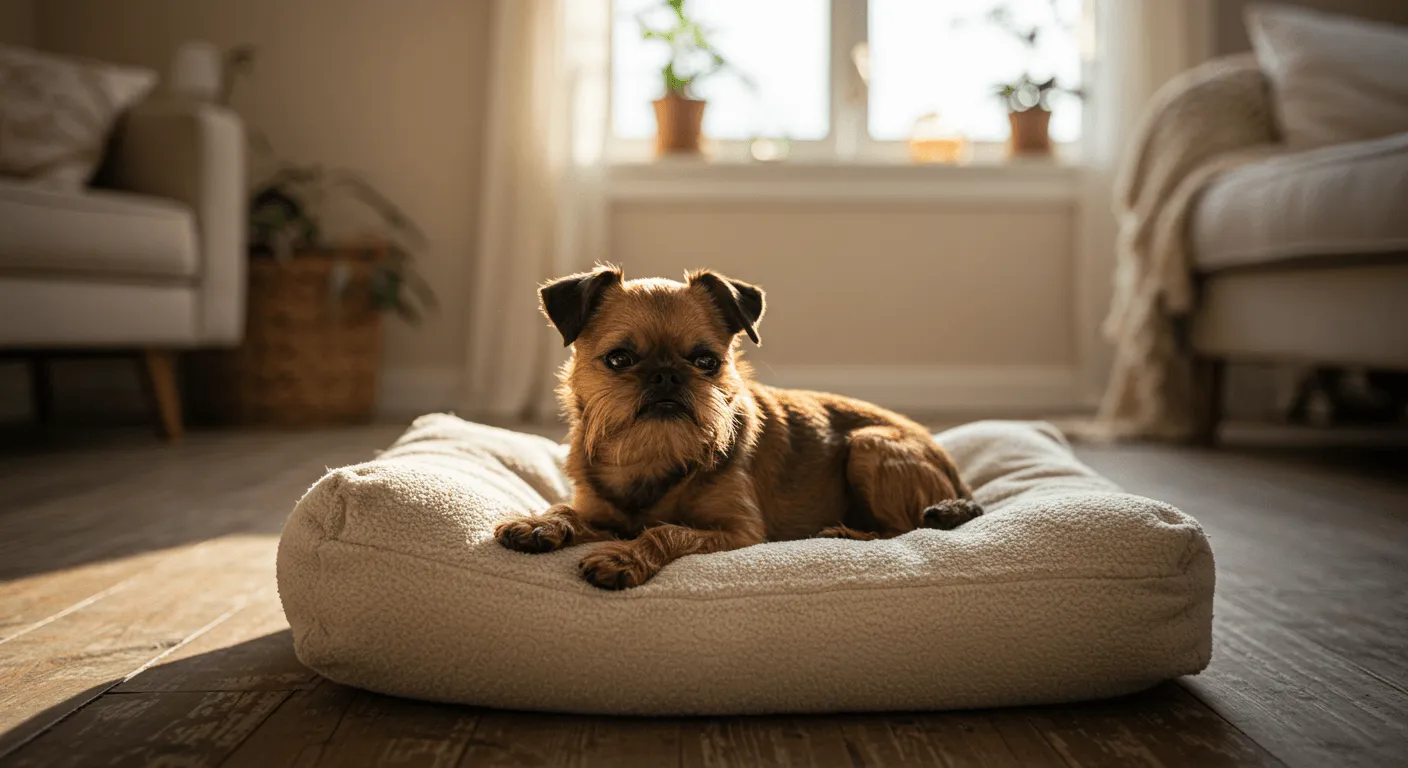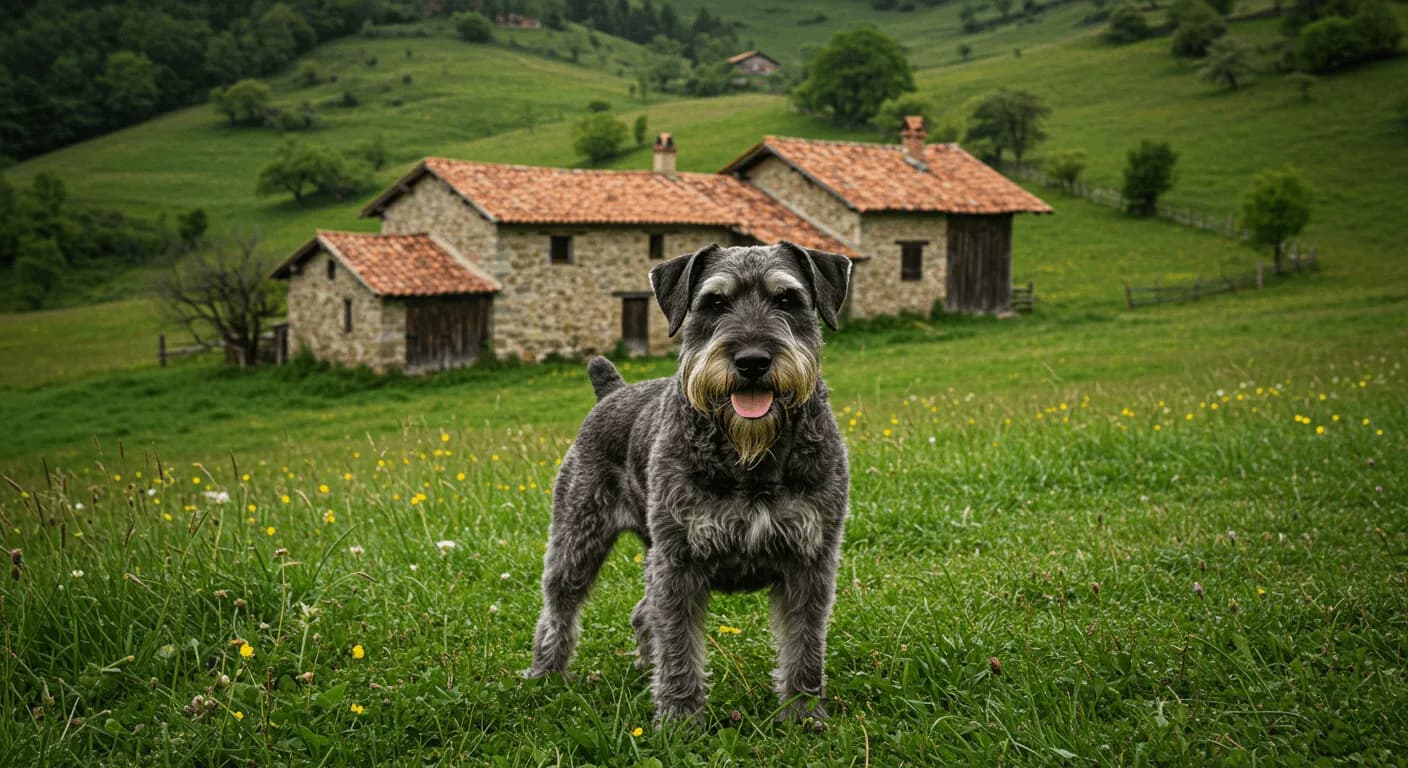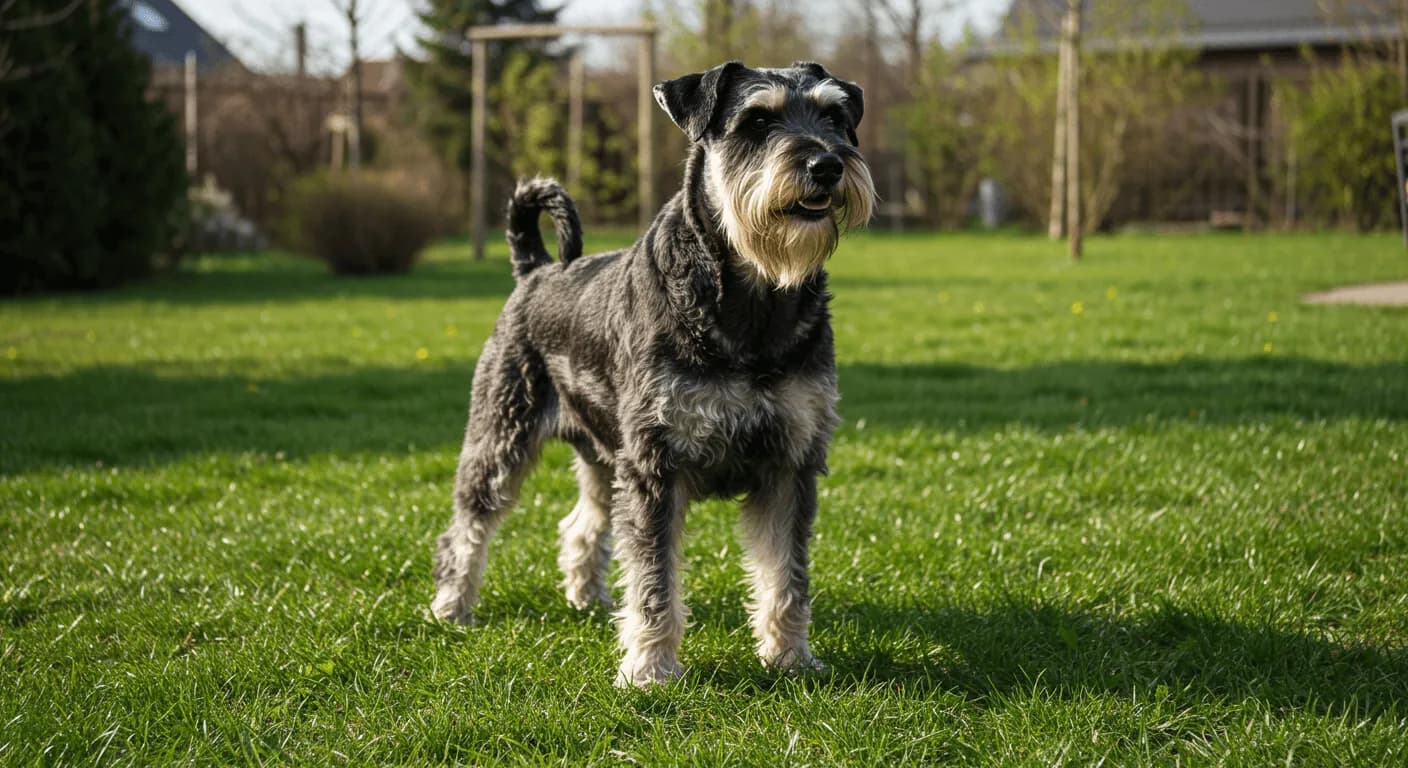Brussels Griffons may be small in stature, but their big personalities and distinctive looks have earned them a dedicated fan base. These toy-sized dogs come with expressive faces, often likened to that of a grumpy monkey or a miniature Ewok. But behind their almost comical appearance lies a dog that’s full of charm, intelligence, and loyalty.
If you’re wondering "Is a Brussels Griffon right for me?" this detailed guide will help you explore the breed’s characteristics, lifestyle requirements, and whether or not they align with your household and needs.
Temperament and Personality
Brussels Griffons are vibrant and affectionate creatures that thrive on companionship. These confident little dogs carry themselves with dignity and expect to be included in family activities.
Behavioral Traits
Brussels Griffons are known for their attachment to their owners. In fact, many owners of this breed say their Brussels seems more human than dog. They are:
- Highly expressive: One glance at their wide, saucer-like eyes and you'll know exactly how they're feeling.
- Emotionally intelligent: They have an almost uncanny ability to sense your moods and often mirror emotional states.
- Sensitive and curious: They don’t respond well to harsh corrections but thrive on praise and gentle guidance.
Energy Levels and Social Tendencies
Despite their small size, Brussels Griffons are energetic and playful. They enjoy being the center of attention and perform delightful antics to make you laugh. They are:
- Moderately active: Daily playtime and short walks are usually sufficient.
- Social butterflies: They enjoy meeting new people and pets, but early socialization is key to avoiding timidity.
- Attention seekers: Brussels Griffons dislike being alone for long periods and may develop separation anxiety.

Pros and Cons for Different People
Choosing a Brussels Griffon isn't a one-size-fits-all decision. Here's how the breed suits varying types of households and individuals:
Families with Children
Pros:
- They are affectionate and form strong bonds with children.
- Their small size makes them easy for older children to handle.
Cons:
- Not ideal for homes with very young or rough children, as they can be easily injured or become nervous.
Single Individuals
Brussels Griffons love forming strong one-on-one bonds, which makes them perfect for single owners. They are a great match for someone looking for a close companion.
Elderly Owners
Pros:
- Low exercise needs and small size make them manageable.
- Alert and responsive, they are excellent emotional support dogs.
Cons:
- They can be high-maintenance in terms of grooming and emotional neediness.
Active Lifestyles vs. Sedentary Lifestyles
Griffons are more suited to a moderate lifestyle. They enjoy going for walks but don't require hours of running or vigorous activity.
- Active Lifestyle: They can keep up with light hiking and walks, but may not be ideal jogging companions.
- Sedentary Lifestyle: A good match as long as daily walks and playtime are ensured.

Suitability Factors
People often ask whether Brussels Griffons fit within a specific living situation or family dynamic. Here's what you should know:
Are Brussels Griffons Good with Kids?
Yes, with supervision. Older, gentle children often form great relationships with Griffons. Supervised socialization is important to prevent accidental injury or fear-based snapping.
Are Brussels Griffons Good with Other Dogs?
They typically get along with other dogs, especially when raised with them. Early socialization is crucial to prevent them from becoming territorial or fearful.
Are Brussels Griffons Good with Cats?
They can be good with cats if introduced early. However, their prey drive might be triggered with smaller animals like hamsters or birds.
Are Brussels Griffons Good Guard Dogs?
Despite their size, Brussels Griffons are excellent watchdogs. They are:
- Alert and reactive: Quick to notify you of something unusual.
- Protective: Often courageous to the point of being feisty.
Are Brussels Griffons Good for Apartments?
Absolutely. Their small size and moderate exercise requirements make them ideal for apartment living. However, their barking needs to be managed, especially in close quarters.
Do Brussels Griffons Need a Yard?
While a yard is a bonus, it's not necessary. These dogs are just as happy with walks and indoor playtime. They thrive more on social interaction than wide-open spaces.
Is a Brussels Griffon Good for First-Time Owners?
Yes, with a caveat. First-time owners who are ready to invest time in training and bonding will find the Griffon to be a rewarding pet. Their intelligence and sensitivity, however, require patience and positive reinforcement training techniques.

Care Requirements
Exercise Needs
Brussels Griffons fall into a moderate category. They won’t run you ragged, but they do need regular activity to remain healthy and mentally stimulated.
- A brisk 20-30 minute walk daily will suffice
- Include indoor fetch or tug-of-war for enrichment
Grooming Requirements
There are two coat types: rough and smooth.
- Rough-coated Griffons need regular brushing to prevent matting, as well as occasional trimming.
- Smooth-coated Griffons require less brushing but shed more noticeably.
Both coat types may shed moderately, and neither is considered truly hypoallergenic. Drooling is not normally an issue with this breed.
High grooming needs:
- Weekly brushing at minimum
- Professional grooming for rough coats every 6–8 weeks
- Eye and ear cleaning due to facial shape
Training Considerations
Brussels Griffons are intelligent but sensitive. They can be stubborn if training is too harsh or inconsistent.
- Use positive reinforcement
- Avoid punishment-based methods
- Begin socialization and training early
One area to monitor is barking. Because they're alert and expressive, Griffons may bark at noises or strangers.
Can Brussels Griffons Live Outside?
No. These dogs are indoor companions through and through. Their coat does not protect them adequately from temperature extremes, and emotionally, they need to be around their people.
Can Brussels Griffons Be Left Alone?
Only for short periods. These dogs crave human connection and may become destructive or anxious if left alone too often.
To manage their alone time:
- Use interactive toys and puzzle feeders
- Consider doggy daycare or a pet sitter for longer absences
- Slowly train them to tolerate being alone for increasing timeframes
Are Brussels Griffons High Maintenance?
Yes — especially emotionally. They demand time, attention, and regular grooming. If you're away often or looking for an independent dog, this breed may not be your best match.
Health and Lifespan
Common Health Issues
While overall healthy, Brussels Griffons are prone to several breed-specific health concerns:
- Brachycephalic syndrome: Due to their flat faces, some may have breathing issues.
- Eye problems: Because of their large, protruding eyes, injuries and infections can occur.
- Patella luxation: A common issue in small breeds, where the kneecap slips out of place.
- Dental issues: Toy breeds often suffer from gum and tooth decay.
Regular checkups and diet management help mitigate these risks.
Brussels Griffon Life Expectancy
With good care, a Brussels Griffon can live 12 to 15 years. Their long lifespan makes their emotional commitment even more critical — this isn’t a short-term companion.
Are Brussels Griffons Hypoallergenic?
No. While some may claim Griffons produce less dander than other breeds, they are not officially hypoallergenic.
- Rough coats tend to trap dander, reducing its spread
- Smooth coats shed more and may trigger allergies more easily
People with allergies should spend time with the breed before bringing one home.
Cost and Legal Considerations
How Much Does a Brussels Griffon Cost?
Breeders can charge anywhere from $2,000 to $4,000 USD for a Brussels Griffon puppy, depending on pedigree, location, and coat type.
Additional costs include:
- Food and treats
- Routine vet visits ($200–500 annually)
- Grooming ($50–80 per session)
- Pet insurance
- Accessories and toys
Adoption may lower your upfront cost, and some Brussels Griffons are occasionally available through rescue networks.
Brussels Griffon Legal Restrictions
This breed is not commonly subject to breed bans or legal restrictions. However, always check with your local HOA or housing regulations — even small dogs can face leash and noise restrictions in some communities.
Stay tuned for the conclusion where we summarize everything you’ve learned to help you decide once and for all: is the Brussels Griffon the right dog for you?
Conclusion
The Brussels Griffon may be small in size, but it’s packed with personality, charm, and loyalty. This expressive and affectionate breed thrives in homes where it is treated as a true family member, included in daily life, and given plenty of attention. For those who desire a deeply bonded companion and are prepared to meet their emotional and grooming needs, the Brussels Griffon can be a truly rewarding addition to your home.
Ideal for individuals or families who are home often, enjoy interacting with their dog, and have patience for training and grooming.
Less ideal for households with very young children, people frequently away from home, or those seeking a low-maintenance or independent pet.
If you’re looking for a dog with a big heart, lively spirit, and a touch of quirky charm, the Brussels Griffon might just be your perfect match. With the right care, this little dog will reward you with years of laughter, cuddles, and unforgettable companionship.




